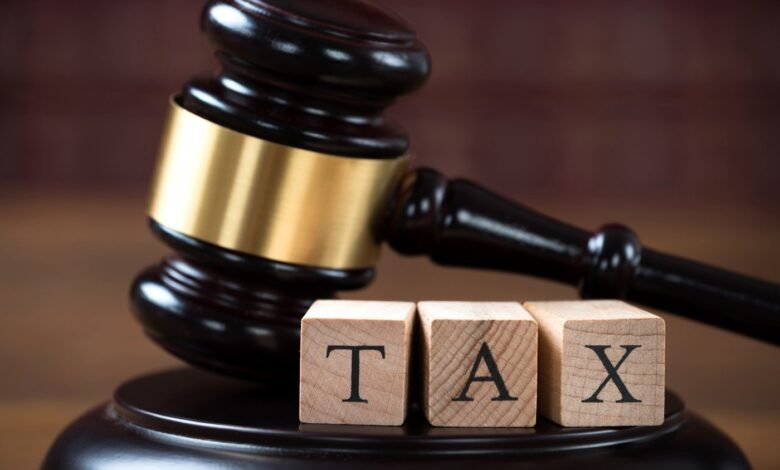Selecting the Right Tax Lawyer in England

Tax law in England encompasses a wide range of regulations and statutes governing the assessment and collection of taxes. These taxes can include income tax, capital gains tax, value-added tax (VAT), inheritance tax, and corporate tax, among others. Understanding and complying with these laws is crucial for individuals and businesses to avoid penalties and legal complications.
Importance of Hiring a Tax Lawyer In England
The complexity of tax law often requires specialized knowledge and expertise, which is where tax lawyers play a vital role. Here are some reasons why hiring a tax lawyer is important:
- Expertise: Tax lawyers have in-depth knowledge of tax laws and regulations, allowing them to provide accurate advice and guidance.
- Strategic Planning: They can develop tax strategies to minimize liabilities and maximize benefits for individuals and businesses.
- Compliance: Tax lawyers ensure clients comply with tax laws and regulations, reducing the risk of audits and penalties.
- Representation: In cases of disputes or audits, tax lawyers can represent clients before tax authorities and in court proceedings.
- Risk Management: They help identify and mitigate potential risks related to tax matters, protecting clients’ interests.
Qualities to Look for in a Tax Lawyer
When selecting a tax lawyer in England, it’s essential to consider the following qualities:
- Expertise: Look for a tax lawyer with specialized knowledge and experience in tax law relevant to your situation, such as personal taxation, corporate taxation, or international tax issues.
- Experience: Consider the lawyer’s track record in handling similar cases and achieving favorable outcomes for clients.
- Communication Skills: Effective communication is key to understanding complex tax matters and making informed decisions. Ensure the lawyer can explain legal concepts clearly.
- Problem-Solving Abilities: A good tax lawyer should be creative and strategic in finding solutions to tax challenges, such as tax planning strategies or resolving disputes.
- Ethical Standards: Choose a tax lawyer who adheres to professional ethics and maintains integrity in all dealings.
Researching Potential Tax Lawyers
To find potential tax lawyers in England, you can use various resources:
- Referrals: Seek recommendations from trusted sources, such as friends, family, or business associates who have worked with tax lawyers.
- Online Search: Use search engines and legal directories to find tax lawyers in your area. Review their profiles, qualifications, and client reviews.
- Professional Networks: Consult professional organizations, such as bar associations or tax law associations, for referrals to reputable tax lawyers.
Related: Top 10 Tax Law Updates for Businesses In 2024
Comparing and Evaluating Tax Lawyers
Once you have a list of potential tax lawyers, compare and evaluate them based on the following criteria:
- Expertise and Specialization: Assess their expertise in the specific area of tax law relevant to your needs, such as personal taxation, business taxation, or international tax matters.
- Experience and Track Record: Review their experience handling cases similar to yours and their success rate in achieving favorable outcomes for clients.
- Communication and Accessibility: Consider their communication style, responsiveness, and availability to address your questions and concerns.
- Fees and Billing Structure: Understand their fee structure, including hourly rates, flat fees, or contingency-based fees, and ensure it aligns with your budget and expectations.
- Client Reviews and References: Check client reviews and testimonials and ask for references to gauge their reputation and client satisfaction.
Consultation and Decision-Making Process
Schedule consultations with the shortlisted tax lawyers to discuss your tax situation, goals, and concerns. During these consultations:
- Share your situation: Provide detailed information about your tax issues, financial circumstances, and objectives.
- Ask Relevant Questions: Inquire about the lawyer’s experience, approach to handling cases, proposed strategies, estimated timeline, and potential outcomes.
- Assess Compatibility: Evaluate how well you communicate with the lawyer, their understanding of your needs, and whether you feel comfortable working with them.
- Review Engagement Terms: Clarify engagement terms, including fees, scope of work, responsibilities, and communication channels.
After consultations, carefully consider all factors before making a decision. Choose a tax lawyer who not only meets your criteria but also instills confidence and trust.
Cost Considerations and Payment Structure
When hiring a tax lawyer in England, consider the following cost considerations and payment structures:
- Hourly Rates: Some tax lawyers charge hourly rates for their services. Ensure you understand the billing increments and estimate the total cost based on the expected time for your case.
- Flat Fees: Some lawyers may offer flat fees for specific services, such as tax planning or preparing tax returns. Clarify what services are included in the flat fee and any additional charges.
- Contingency Fees: In certain cases, tax lawyers may work on a contingency basis, where their fees are contingent upon achieving a favorable outcome, such as reducing tax liabilities or winning a case. Understand the terms and percentage of the contingency fee.
- Retainer Agreements: Some clients may enter into retainer agreements with tax lawyers, where they pay an upfront retainer fee for ongoing legal services. Clarify the scope of services covered by the retainer and any additional charges.
- Billing Transparency: Ensure the tax lawyer provides transparent billing practices, including detailed invoices outlining services rendered, time spent, and expenses incurred.
Choose a payment structure that aligns with your budget, preferences, and the complexity of your tax matter. Discuss payment terms and expectations upfront to avoid misunderstandings later.
Conclusion
Selecting the right tax lawyer in England requires thorough research, evaluation, and consideration of various factors, including expertise, experience, communication, ethics, and cost. By following a systematic approach and choosing a lawyer who understands your needs, you can navigate tax matters with confidence and achieve favorable outcomes.
FAQs
1. What are the benefits of hiring a tax lawyer?
Hiring a tax lawyer offers several benefits, including expert advice, strategic planning, compliance assurance, risk management, and representation in legal proceedings.
2. How can I find reputable tax lawyers in England?
You can find reputable tax lawyers in England through referrals, online searches, professional networks, and legal directories. Consider their expertise, experience, client reviews, and reputation before making a decision.
3. What questions should I ask during consultations with tax lawyers?
During consultations, ask about the lawyer’s experience, approach to handling cases, proposed strategies, estimated costs, communication channels, and potential outcomes related to your tax issues.
4. What are common payment structures for tax-legal services?
Common payment structures for tax legal services include hourly rates, flat fees, contingency fees, retainer agreements, and transparent billing practices. Choose a payment structure that suits your budget and the complexity of your tax matter.
5. How do tax lawyers help with tax planning and compliance?
Tax lawyers assist with tax planning by developing strategies to minimize tax liabilities, maximize benefits, and ensure compliance with tax laws and regulations. They also provide guidance on tax reporting, audits, disputes, and legal compliance measures.











